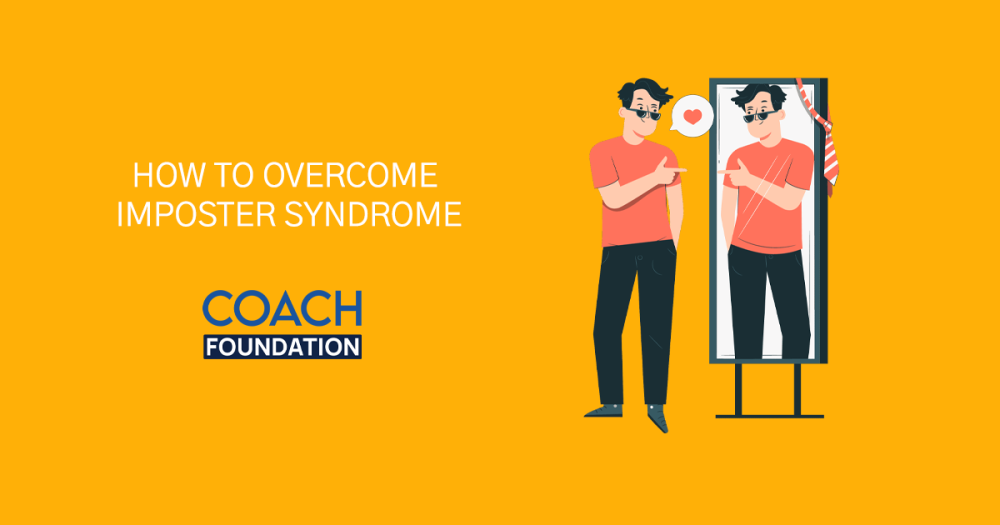Blog » Psychology Coaching » How to Overcome Imposter Syndrome
How to Overcome Imposter Syndrome
Are you struggling with feeling like a fraud in your accomplishments? Imposter syndrome can be a real challenge, but you don’t have to let it hold you back any longer.
In this article, we’ll explore 8 effective ways to overcome imposter syndrome and regain your confidence.

Whether you’re a student, professional, or entrepreneur, these practical tips will help you break free from self-doubt and embrace your true capabilities.
Don’t let imposter syndrome control your life – take charge and conquer it today.
What is impostor syndrome?
Do you ever feel like you don’t belong or that you’re not good enough despite evidence to the contrary?
That’s exactly what imposter syndrome is – a psychological pattern where individuals doubt their achievements and fear being exposed as frauds.
Who does imposter syndrome affect
Both men and women can experience imposter syndrome, although it’s more commonly reported by women.
It can affect individuals at any stage of their career, from entry-level positions to high-ranking executives. Students, artists, entrepreneurs, and even celebrities can also be susceptible to imposter syndrome.
The feeling of being a fraud can stem from various factors, such as perfectionism, fear of failure, or a lack of self-confidence.
Ultimately, imposter syndrome can impact anyone who doubts their abilities and struggles to internalize their accomplishments.
Effects of Imposter Syndrome
Imposter syndrome can have significant effects in some settings. Let’s understand these effects better with this section.
In Academics & Professional Settings
Imposter syndrome can have a significant impact on individuals in academic or professional environments. In academia, you may constantly worry that others will discover you don’t deserve your achievements, leading to anxiety and fear of failure.
In professional settings, imposter syndrome can manifest as a constant need for validation and a fear of taking on new challenges. It can hold you back from pursuing opportunities and reaching your full potential.
In Relationships
When in relationships, you may constantly worry that your partner will discover you aren’t as competent or accomplished as you appear to be.
This fear of being exposed as a fraud can lead to feelings of anxiety and insecurity, making it difficult to fully trust and open up to your partner.
It’s important to remind yourself that you aren’t defined by your accomplishments or perceived shortcomings.
You’re worthy of love and acceptance just as you are. Open communication and seeking support from your partner can help alleviate the effects of imposter syndrome in your relationship.
8 ways to overcome imposter syndrome
Now, let’s explore some effective strategies to overcome imposter syndrome.
Recognize your emotions and make a list of accomplishments
Acknowledging and recognizing your emotions is an important step in overcoming imposter syndrome. It allows you to understand and address the doubts and insecurities that may be holding you back.
By making a list of your accomplishments, big or small, you can remind yourself of your capabilities and the successes you have achieved. Seeing your achievements in black and white can boost your confidence and serve as a reminder that you aren’t an imposter.
Try positive reframing and cognitive restructuring
Imposter syndrome often stems from negative self-talk and distorted thinking patterns. By practicing positive reframing, you can challenge these negative thoughts and replace them with more positive and realistic ones.
Cognitive restructuring involves identifying and questioning the irrational beliefs and thoughts that contribute to imposter syndrome. Challenge your negative assumptions and replace them with more rational and balanced thoughts.
Remember that everyone makes mistakes and experiences self-doubt at times. Embrace the fact that it’s normal to feel uncertain and use these moments as opportunities for growth and learning.
Try not to compare yourself to others
Don’t let yourself fall into the trap of comparing your accomplishments to those of others when trying to overcome imposter syndrome. It’s easy to feel inadequate when you see someone else achieving great things or receiving recognition.
But remember, everyone’s journey is different, and comparing yourself to others only fuels self-doubt.
Instead, focus on your own progress and growth. Celebrate your achievements, no matter how small they may seem. Remind yourself that you have unique talents and experiences that contribute to your success.
Comparing yourself to others only diminishes your self-worth and perpetuates imposter syndrome. So, stay focused on your own goals and trust in your abilities.
Talk to someone about your problem
Share your feelings of imposter syndrome with someone you trust. Opening up about your struggles can be a tremendous relief and help you gain perspective. Find a person who’s understanding, empathetic, and non-judgmental.
It could be a close friend, family member, mentor, or therapist. Talking to someone allows you to express your fears and insecurities openly. They can provide a listening ear, offer reassurance, and help you see your achievements and capabilities more objectively.
Additionally, they may share their own experiences of imposter syndrome, making you realize that you aren’t alone in this struggle. Remember, seeking support isn’t a sign of weakness; it’s a sign of strength and a step towards overcoming imposter syndrome.
Focus on how you’ll react to potential mistakes
Take note of, but don’t dwell on, any mistakes you make along the way. It’s natural to feel embarrassed or inadequate when you make a mistake, especially if you’re struggling with imposter syndrome.
However, it’s important to remember that mistakes are a part of growth and learning. Instead of beating yourself up over them, focus on how you’ll react to potential mistakes in the future.
Cultivate a mindset of resilience and self-compassion. Acknowledge the mistake, learn from it, and move forward. By doing so, you’ll be able to break free from the cycle of self-doubt and build confidence in your abilities.
Find a Coach
A confidence coach can provide valuable insights, advice, and encouragement to help you overcome imposter syndrome.
They can help you gain perspective, challenge your self-doubt, and provide guidance on how to overcome feelings of inadequacy. By working with them, you will find yourself overcoming your negative feelings.
Predict imposter syndrome
By recognizing common triggers and developing coping mechanisms, you can effectively predict and overcome imposter syndrome.
One way to predict imposter syndrome is to pay attention to your thoughts and feelings when you achieve success. If you find yourself dismissing your accomplishments as luck or downplaying your abilities, it may be a sign that imposter syndrome is creeping in.
Another trigger to watch out for is comparison. When you constantly compare yourself to others and feel inadequate, imposter syndrome can take hold. To overcome this, focus on your own progress and celebrate your own achievements.
Additionally, stress and pressure can also trigger imposter syndrome. Learning to manage stress and setting realistic expectations for yourself can help prevent imposter syndrome from taking over.
Normalize imposter syndrome and reframe your experiences
Don’t let imposter syndrome define your worth – instead, embrace it as a common experience that many successful individuals face. Imposter syndrome often makes you feel like you don’t belong or that your achievements aren’t deserved.
But the truth is, many high-achieving individuals have experienced these feelings at some point in their lives.
By normalizing imposter syndrome, you can understand that it isn’t a reflection of your capabilities or intelligence. It’s simply a result of setting high standards for yourself and constantly striving for success.
Reframe your experiences by acknowledging your accomplishments and recognizing the hard work and effort you put into achieving them.
Remember that you aren’t alone in feeling like an imposter, and it’s just a hurdle to overcome on your path to success.
Conclusion
In conclusion, overcoming imposter syndrome is possible by implementing various strategies and techniques.
By acknowledging your accomplishments, reframing negative thoughts, seeking support from others, and practicing self-compassion, you can gradually overcome feelings of self-doubt and insecurity.
Remember, you aren’t alone in experiencing imposter syndrome, and with time and effort, you can gain confidence in your abilities and recognize your true worth.
Frequently Asked Questions
Q: Is imposter syndrome more common in women?
Many studies and anecdotal evidence suggest that women are more likely to experience imposter syndrome compared to their male counterparts.
This phenomenon may be attributed to societal expectations, gender biases, and the pressure to prove oneself in male-dominated industries.
It’s important to recognize that imposter syndrome isn’t a reflection of one’s abilities or competence but rather a result of external factors.
By acknowledging and addressing imposter syndrome, women can regain their confidence and achieve their full potential.
Q: Does social media have an impact on imposter syndrome?
It’s common to feel like an imposter when scrolling through social media platforms, where people showcase their achievements and highlight reels of their lives.
Seeing others’ success and seemingly perfect lives can intensify feelings of inadequacy and self-doubt.
Remember that social media only shows a small fraction of someone’s life, and it’s important to focus on your own journey and accomplishments.
Limiting your exposure to social media and reminding yourself of the reality behind the curated posts can help alleviate the impact it has on your imposter syndrome.


ABOUT SAI BLACKBYRN
I’m Sai Blackbyrn, better known as “The Coach’s Mentor.” I help Coaches like you establish their business online. My system is simple: close more clients at higher fees. You can take advantage of technology, and use it as a catalyst to grow your coaching business in a matter of weeks; not months, not years. It’s easier than you think.
AS SEEN ON
0 Comment